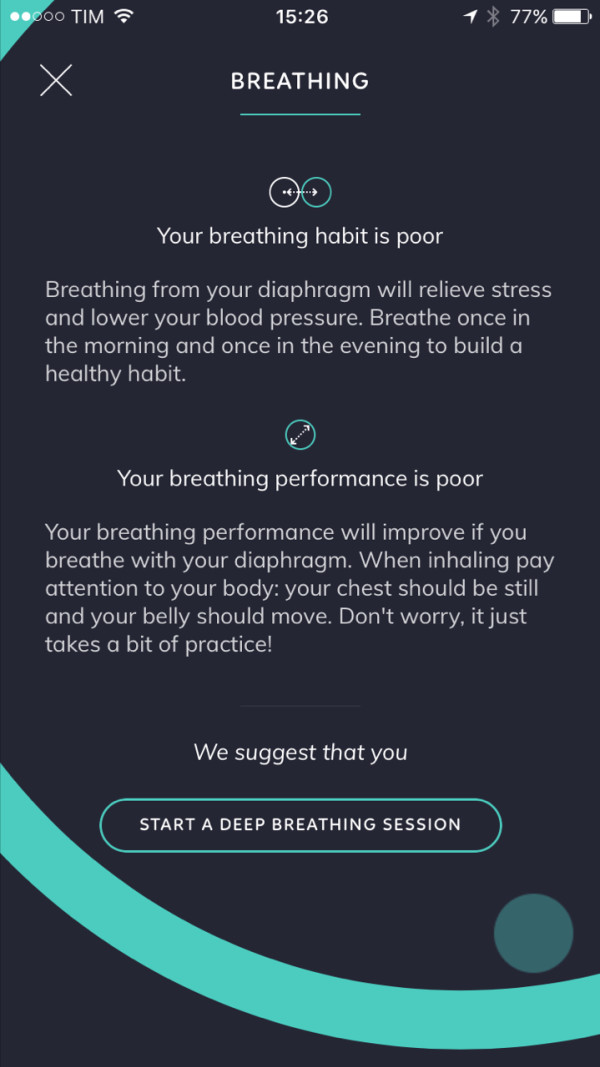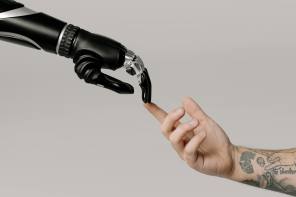

Axa PPP Healthcare has signed a deal with med-tech startup BioBeats to give wellbeing and stress management help to policyholders.
The service, called Hear and Now, is an interactive wellbeing platform that helps employees manage their work-related stress and fatigue through wearable technology.
According to BioBeats' chief executive, Dr David Plans: "The goal is to help our users avoid chronic conditions that arise from unmanaged stress."
Initially, Axa PPP Healthcare will offer the platform to the insurer’s large corporate customers, so that employees can use the platform and app via their smartphone and wearable devices.
The healthcare platform will also help employers give their employees a direct and less intrusive way to get help.
It uses BioBeats’ AI-based learning to spot when fatigue and sleep recovery are at dangerous levels, helping individuals to make positive behaviour changes over time.
The BioBeats software uses artificial intelligence (AI) algorithms and software, based on evidence-based stress management, to target wellbeing in the workplace.
It allows users to understand how their body and mind respond to stress and how it affects them in their work and personal life.
To do this, the software identifies stress patterns using existing sensors in smartphones and/or wearable devices such as the Apple Watch, Garmin, Mio, FitBit and Microsoft Band, as well as devices by Huawei and LG, through BioBeats’ collaboration with Google.
Initially, Axa PPP Healthcare will offer the platform to the insurer’s large corporate customers, so that employees can use the platform and app via their smartphone and wearable devices.
The healthcare platform will also help employers give their employees a direct and less intrusive way to get help, leveraging BioBeats’ machine learning to spot when fatigue and sleep recovery are at dangerous levels, helping individuals to make positive behaviour changes over time.
Simon Miller, head of proposition for Axa PPP Healthcare, commented: “[There is a] new era of preventive health, where real-time physical and psychological data will enable us to provide individuals with unprecedented insights into, and opportunities to improve and maintain, their health and wellbeing.
"Employers will benefit too, with access to anonymised workforce stress data.
"It will enable them to shape more effectively their strategies for improving employee wellness, job satisfaction and performance and, in turn, better manage sickness absence, presenteeism and productivity.”
Dr Plans added: "The way people monitor and engage in their health is changing – innovations in technology mean greater knowledge and insight is available instantly at our fingertips.
"The aim of our platform and app and its future developments is to help users track and improve their overall wellbeing by continuously monitoring levels of physical and mental stress in real-time."
In January 2017, BioBeats published a paper in the Frontiers in Human Neuroscience journal, entitled The Association between Work-related Rumination and Heart Rate Variability: a Field Study.
The paper investigated the link between rumination (the process of thinking about work outside of work) and cardiovascular disease.
According to the research, the stress of constantly working – being connected to your phone, laptop, and emails, without any dedicated interventions, can be deadly as it is linked to cardiovascular disease.
In February 2016, FTAdviser asked whether the future of insurance lay with wearable technology - the so-called Pay as You Live Insurance.
In the guide, which qualifies for 60 minutes' worth of structured CPD, commentators suggested the better integration of wearable tech and individual or workplace protection could improve both the end user's health and wellbeing, and potentially reduce their premiums as a result.
At the time, Peter Le Beau, founder of consultancy Le Beau Visage, says: “The role of technology is vital because it can provide a range of important health and lifestyle measures, which can be fed into a premium computation.”
simoney.kyriakou@ft.com



